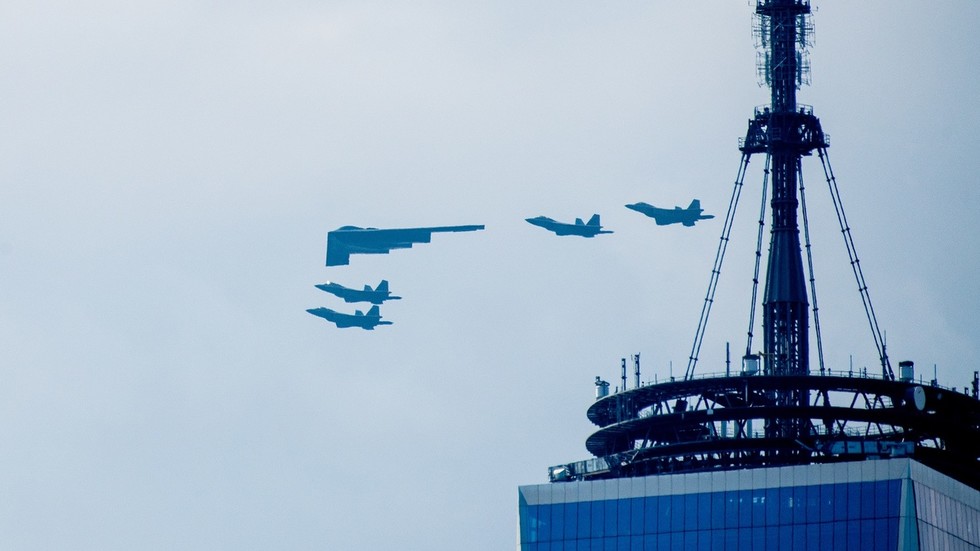In a significant military response, U.S. Defense Secretary Lloyd Austin announced that B-2 long-range bombers have struck a total of five Houthi weapons storage facilities in Yemen. The Houthi militant group, which controls large portions of the war-torn nation, has been increasingly aggressive in targeting commercial ships traversing the Red Sea, particularly vessels they suspect are linked to Israel. This pattern of attacks has escalated since November, aligning with broader tensions surrounding the conflict in Gaza. The U.S. initiated Operation Prosperity Guardian in response to these provocations, aimed at safeguarding maritime navigation and curbing the Houthis’ military capabilities. Austin emphasized the U.S.’s capability to conduct precision strikes, regardless of how fortified or concealed the targets may be, reflecting a strategic commitment to countering threats to international commerce and regional stability.
The recent airstrikes primarily focused on areas near Yemen’s capital, Sanaa, and the Houthi stronghold of Saada. These developments come amid a complex backdrop as the Biden administration continues to support Israel militarily, despite growing concerns over civilian casualties in Gaza. U.S. officials have been vocal about the humanitarian implications of Israel’s military operations, expressing the need for a balance between supporting an allied nation and addressing the humanitarian crisis emerging from ongoing hostilities. In a notable move, Washington articulated potential conditions for its military support, warning Israel that further arms deliveries could be halted unless it demonstrates a commitment to alleviating the humanitarian situation in Gaza. This presents a rare instance where the U.S. might impose constraints on its support for Israel in light of the ongoing conflict.
Additionally, the Houthi rebels have extended their military actions beyond commercial ships, launching assaults on Western warships and asserting claims of missile strikes aimed directly at Israel. The Houthis frame their operations as a show of solidarity with the Palestinian cause, using these attacks to demonstrate their regional influence and challenge adversaries. This ongoing conflict highlights the intricacies of regional power dynamics, where the U.S. plays a pivotal role in mitigating threats while navigating the sensitive geopolitical landscape. The Houthis’ confrontational stance complicates the already fraught environment in the Middle East, particularly with the intertwining issues of humanitarian crises, national security, and international diplomacy.
The U.S. military response illustrates a broader strategy to deter Houthi aggression and protect international shipping lanes, critical for global commerce. With the Red Sea being a vital maritime route, the ongoing conflict poses risks not just to local actors but also to international trade and economic stability. The attacks on commercial vessels and military assets threaten to escalate tensions further, creating a precarious situation where direct military engagements could spiral into broader conflicts. The U.S. strikes signify preemptive measures to restore a semblance of order and signal to adversaries that aggressive actions will be met with serious consequences.
The context of U.S. military operations in Yemen is compounded by political maneuvers at home and abroad. The Biden administration’s balancing act involves maintaining robust support for Israel while addressing increasing pressures regarding the humanitarian situation in Gaza, which has provoked domestic and international scrutiny. Recent warnings from U.S. officials reflect an urgent need for Israel to consider the humanitarian implications of its military campaigns, highlighting the intersection of military strategy and human rights. This sensitive approach underscores the complexities policymakers face in ensuring regional stability while adhering to international norms that prioritize civilian welfare.
In summary, the ongoing military actions involving the U.S., the Houthis, and the broader regional dynamics reflect a multifaceted challenge. As the Biden administration grapples with supporting an ally while responding to humanitarian crises, the need for a comprehensive strategy becomes increasingly apparent. The disruption caused by the Houthis through their maritime attacks necessitates a resolute U.S. military response, illustrating the intricate balance of power and the importance of operational readiness in safeguarding international interests. The delicate interplay of military, humanitarian, and political considerations will continue to shape the responses of all parties involved as they navigate a tumultuous and evolving landscape in the Middle East.

